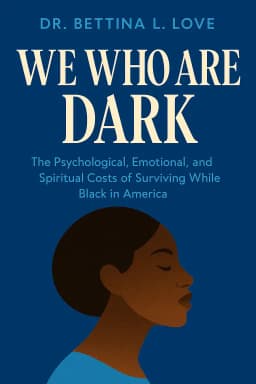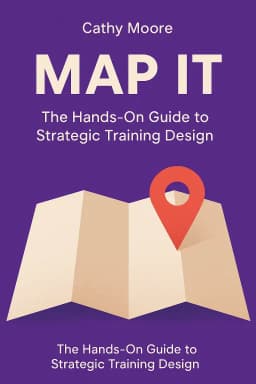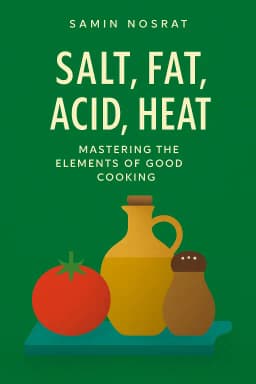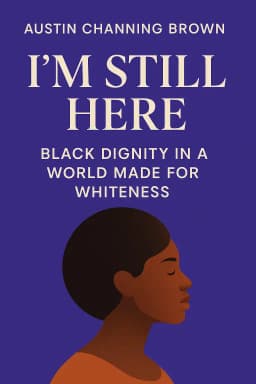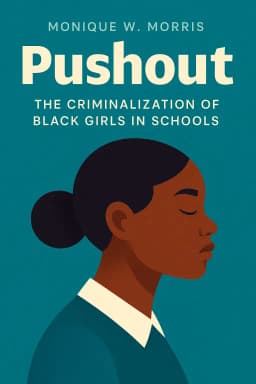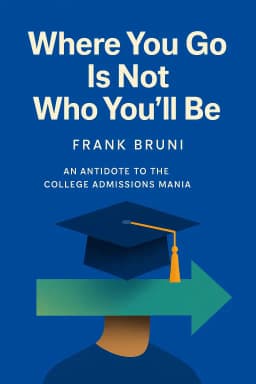
Cracking the College Mania
An Antidote to the College Admissions Mania
Golden Hook & Introduction
SECTION
Laura: Sophia, if you had to describe the modern American college application process in one word, what would it be? Sophia: A spreadsheet. A soul-crushing, joy-sucking, parent-bankrupting spreadsheet. Laura: That's more than one word, but brutally accurate. It's this exact mania that we're tackling today. Sophia: I’m so ready for this. Because it feels like we’ve collectively lost our minds. Laura: We're diving into Frank Bruni's fantastic book, Where You Go Is Not Who You'll Be: An Antidote to the College Admissions Mania. Sophia: And Bruni is the perfect person to write this, right? He’s not some outsider throwing stones. He's a long-time New York Times columnist, a professor at Duke, and a graduate of UNC Chapel Hill and Columbia Journalism. He’s lived in this world of prestige but chose to question it. Laura: Exactly. He saw this national obsession from the inside and decided to write a manifesto against it. And it starts with just how wild the process has become. He fills the first part of his book with stories that sound like urban legends, but they're real. He paints a picture of what he calls 'Obsessives at the Gate'.
The College Admissions Hunger Games: A Portrait of the Mania
SECTION
Sophia: Oh, I love a good 'Obsessives at the Gate' story. Please tell me it's as unhinged as it sounds. Laura: It's even more so. Bruni talks to former admissions officers from elite schools, and the stories they tell are just… breathtaking. One former Yale admissions officer, Michael Motto, recalls reading an application from a young woman who was, on paper, a perfect candidate. Stellar grades, amazing test scores, impressive extracurriculars. Sophia: The classic spreadsheet kid. Laura: Precisely. But then he gets to her personal essay. In it, she describes being in a deeply stimulating intellectual conversation with her French teacher. She was so engrossed, so committed to the life of the mind, that she refused to excuse herself to use the restroom. Sophia: Wait. Don't say it. Laura: She urinated on herself. Right there. And wrote about it. Her point, as Motto later found out, was to show she wouldn't let a mere physical need interrupt her intellectual pursuits. Sophia: You cannot be serious. That's a level of 'try-hard' that is both terrifying and... kind of impressive in its audacity. What did the admissions officer do? Laura: He was completely baffled. He said he just thought, "Don't expose yourselves like this." She was, unsurprisingly, rejected. But it gets worse. Bruni tells another story about a wealthy couple who wanted to give their kids an edge. Sophia: Let me guess. They didn't just donate a library. Laura: Oh, much more creative. They became the primary funders for an orphanage in Africa. Sophia: Okay, that sounds philanthropic. What’s the catch? Laura: The catch is that they did it so the orphanage could be named after their children. Then they flew the kids over a few times for a weekend of token work and a photo-op, so they could write about their profound, life-changing munificence in their college essays. Sophia: That is… profoundly cynical. It’s performance art. It’s turning charity into a branding exercise for a teenager. Laura: Exactly. And Bruni’s point is that the system is so broken that it incentivizes this kind of behavior. The pressure to craft a unique, compelling narrative has become so intense that authenticity is the first casualty. Students are no longer asking "Who am I?" but "What story will get me in?" Sophia: What does this say about the system? That it rewards this kind of manufactured, almost pathological, storytelling? It’s like the whole process is a reality TV show, and you have to produce the most dramatic storyline to win. Laura: That's a perfect analogy. And it creates this immense pressure that starts ridiculously early. Bruni mentions a kindergarten at a top New York private school, Trinity, that has a 2.4% acceptance rate for kids without a family connection. Sophia: A 2.4% acceptance rate for five-year-olds? That’s lower than Harvard’s. That’s insane. Laura: It is. And it sets the stage for this lifelong race. One parent Bruni quotes, who was at an orientation for another elite kindergarten, said he looked around the room and thought, "Look at all these people we have to kill to get our six-year-old into Hunter." Sophia: He was joking, I hope? Laura: He was, but it’s that dark humor that reveals a terrifying truth. The competition is so fierce that it feels like a zero-sum game from the very beginning. Sophia: Okay, so the game is absurd. But people play it because they believe the prize—an elite college degree—is worth it. This is where Bruni really brings out the receipts to prove them wrong, right?
The Prestige Illusion: Why Your College Sticker Doesn't Define Your Worth
SECTION
Laura: This is the core of his argument. He systematically dismantles the idea that prestige equals success. And he starts with a fantastic, counterintuitive question. He looked at the CEOs of the top ten Fortune 500 companies in 2014. What do you think their undergraduate degrees have in common? Sophia: I mean, my gut says Harvard, Yale, Princeton. The usual suspects. That’s the whole point of the mania, isn't it? Laura: That's what we're all conditioned to believe. The reality? Only one of the ten went to an Ivy League school for their undergraduate degree—the CEO of GE, from Dartmouth. The CEO of Wal-Mart went to the University of Arkansas. The CEO of Apple, Tim Cook, went to Auburn. The CEO of Exxon Mobil went to the University of Texas at Austin. Sophia: Whoa. That’s actually shocking. I think most people, myself included, just assume the top of the corporate ladder is paved with Ivy. Laura: And Bruni argues that this assumption is flawed because we overvalue the brand and undervalue other crucial factors. For example, he tells the story of Nikki Haley, the former governor of South Carolina. She went to Clemson. She said that in South Carolina, a Clemson degree gives you an incredible local network. It "immediately takes away barriers." Going to an out-of-state Ivy would have actually put her at a disadvantage in her home state's political scene. Sophia: That makes so much sense. Geography and local connections can matter more than a fancy name, especially if you don't plan on working on Wall Street. But come on, a Harvard degree has to carry more weight with employers than, say, a degree from Arizona State. Laura: You would think so, but the data tells a different story. In 2010, the Wall Street Journal surveyed nearly 500 of the largest companies and agencies, asking recruiters which schools they trusted most for entry-level jobs. The top four were Penn State, Texas A&M, the University of Illinois, and Purdue. Arizona State was number five. Sophia: Where did the Ivies rank? Laura: The only Ivy in the top 25 was Cornell, at number 14. Bruni's point is that for many recruiters, practical skills and a track record of being a hard worker trump the school's brand name. Sophia: So the whole system is built on a flawed premise. We’re all fighting to get into these schools, but the people doing the hiring might not even care that much. Laura: And the schools themselves are complicit in building this illusion. Bruni eviscerates the U.S. News & World Report rankings. He calls them a "business enterprise" that has almost nothing to do with the quality of education. The formula heavily rewards two things: institutional wealth and exclusivity. Sophia: So it’s basically a ranking of which schools are richest and which are best at rejecting people. Laura: Exactly. Schools are incentivized to get more and more applications, just so they can lower their acceptance rate and climb the rankings. They buy student names, send out glossy mailers, and create this illusion of desirability, all while knowing they're going to reject the vast majority of those students. It's a marketing gimmick. Sophia: That’s so cynical. It’s like a nightclub hiring a bouncer to create a long line outside, just to make it look popular. Laura: That’s a perfect analogy. And the students who get into these "nightclubs" aren't always better off. Bruni tells the incredible story of a student from ASU, Wendy Zupac. She was a top student but chose ASU for financial reasons. She thrived there, got into the honors college, and developed close relationships with her professors. Her first choice for law school was Yale. Sophia: And let me guess, the Yale admissions committee looked down on her ASU degree? Laura: Not at all. She got in. And when she got to Yale Law, surrounded by graduates from every Ivy League school, she said she never once felt less prepared or at a disadvantage. Her experience proves that a motivated student can get a world-class education almost anywhere.
Fire Over Formula: The Real Education Happens When You Leave the Path
SECTION
Laura: And that story about the ASU student perfectly sets up Bruni's ultimate point. It’s not about the brand of the school, it's about what you do there. It's about finding your fire, not just following a formula. Sophia: It’s about being an active participant in your education, not just a consumer of a brand. Laura: Precisely. And sometimes, the best thing that can happen to you is not getting what you thought you wanted. The most powerful story in the book, for me, is about a young woman named Jenna Leahy. She went to a prestigious prep school, Phillips Exeter, and had her heart set on Claremont McKenna college. Sophia: Another spreadsheet kid, I'm guessing. Laura: Totally. But she had one weakness: a low math SAT score. Because of that, she was rejected by Claremont McKenna and a whole slate of other selective schools. She was devastated. She told Bruni, "I felt so worthless." Sophia: Oh, that’s heartbreaking. That’s the real danger of this whole mania. It ties a teenager’s entire sense of self-worth to a series of yes or no decisions from strangers. Laura: It is. But here's where the story turns. She ends up at Scripps College in California. And because she's no longer on this pre-ordained, hyper-competitive track, she starts exploring. She gets involved in charity work in Tijuana. She finds a passion she never knew she had. She starts applying for grants and fellowships to fund her work. She studies abroad. She finds herself. Sophia: She became the big fish in a slightly smaller, but maybe more interesting, pond. Laura: A much more interesting pond. After college, she worked for Teach for America and eventually co-founded a public elementary school in Phoenix. And she says something so profound, looking back on it all. I have to quote it. She says, "I never would have had the strength, drive or fearlessness to take such a risk if I hadn’t been rejected so intensely before. There’s a beauty to that kind of rejection, because it allows you to find the strength within." Sophia: Wow. That gives me chills. That's the real antidote, isn't it? The idea that rejection isn't an endpoint, but a redirection. It’s so hard to see that in the moment, especially for a 17-year-old. Laura: It’s almost impossible to see. We're taught that rejection is failure. Bruni argues it's education. It teaches resilience. It forces you to find a different path, and often, that different path is the one you were meant to be on all along. It’s about what you do with the opportunity you're given, not the one you thought you deserved. Sophia: It’s the difference between having a life plan that’s a rigid, straight line versus one that’s a meandering river. The river is way more interesting and probably gets you to a much more beautiful place. Laura: And you learn how to navigate along the way. That’s the real skill. Not checking boxes, but navigating uncertainty. That’s the fire over the formula.
Synthesis & Takeaways
SECTION
Sophia: So, when we strip it all away, what is the one big takeaway from Bruni's book? What should parents and students listening to this really hold onto? Laura: I think it's that the college admissions process has tricked us into believing that a handful of elite schools are the only arbiters of a young person's potential. We've outsourced our judgment to a flawed and arbitrary system. Bruni's work is a powerful reminder that life is long, and a college acceptance letter is just one sentence in the first chapter. Sophia: It’s not the verdict on your life. Laura: Not even close. The real story is written by what you do next—with your own effort, curiosity, and resilience. It's written in the moments you step outside your comfort zone, in the relationships you build with professors who see your potential, and especially in how you respond when you don't get what you want. Sophia: It’s about realizing that where you go is just a location. Who you'll be is a choice you make every single day, long after you've graduated. Laura: That's it exactly. The book is ultimately a call for sanity. It’s permission to breathe. It’s a reminder that your child’s worth, and your own, isn’t measured by the name on a sweatshirt. Sophia: It makes you wonder, what race are you running just because everyone else is? And what might happen if you stepped off the track? Laura: A question worth asking. This is Aibrary, signing off.


